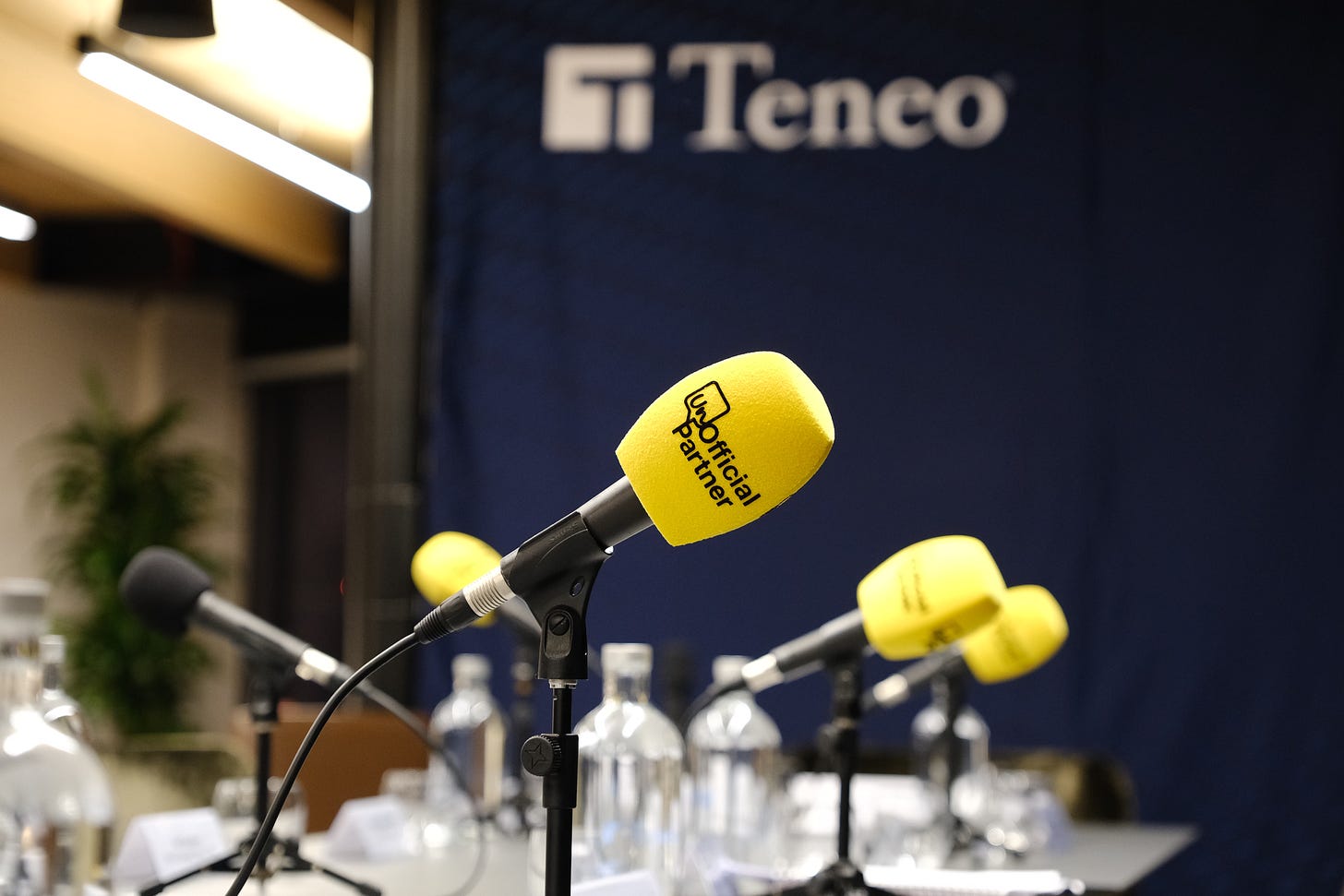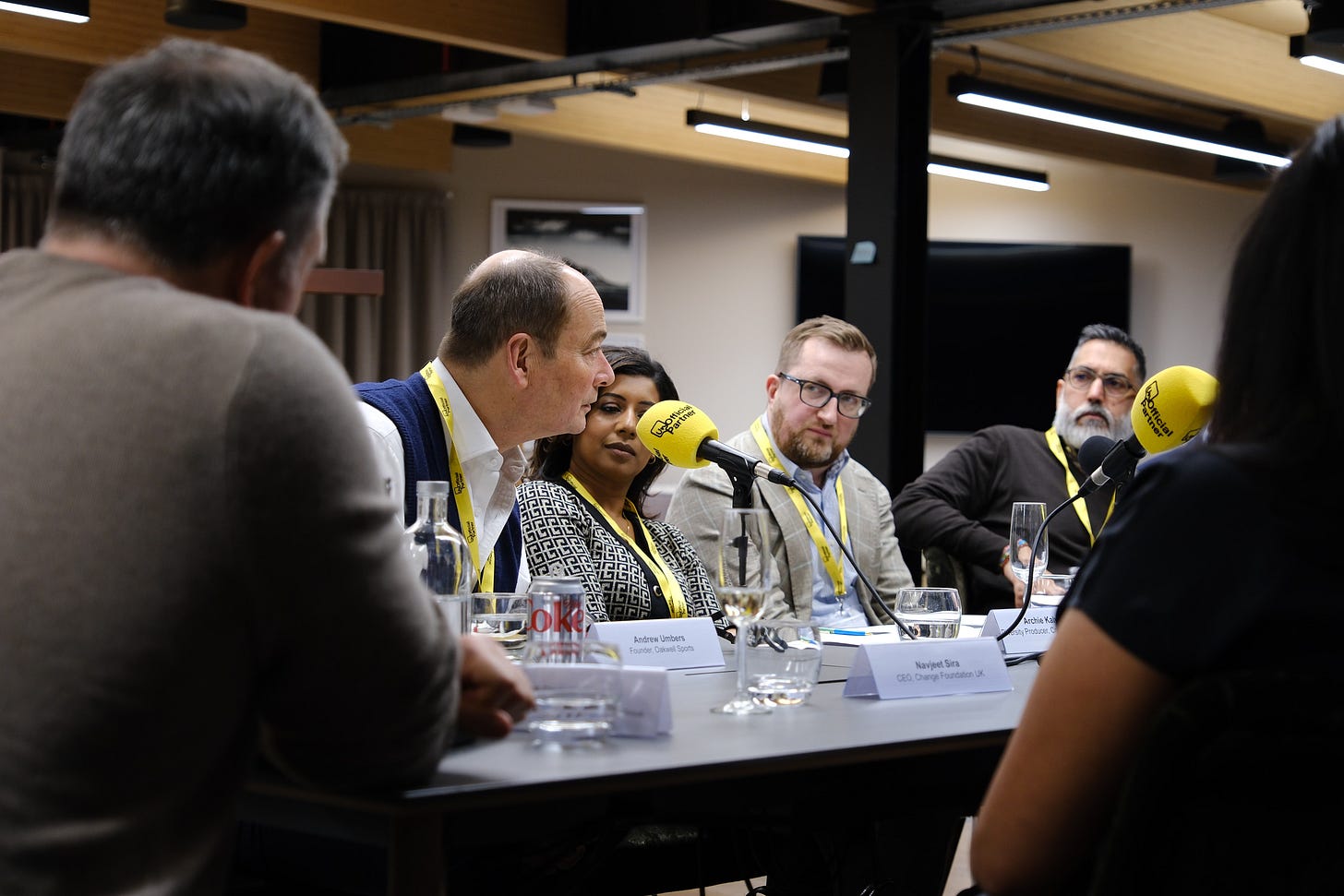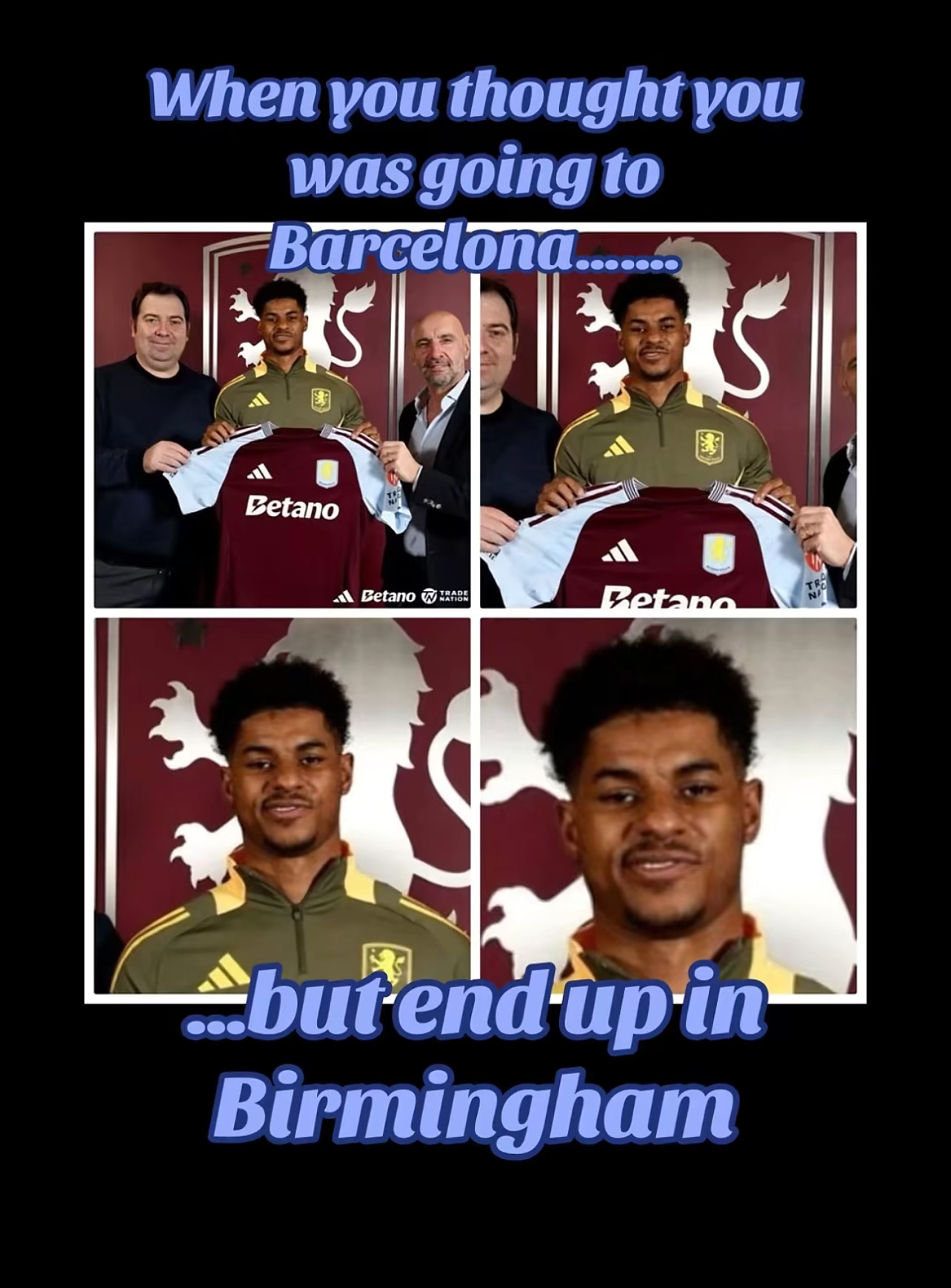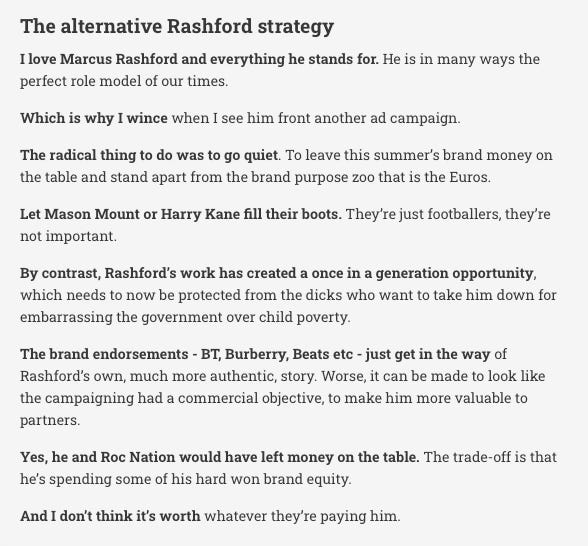Rashford's second album; Where The Hundred cash goes next; Private equity as football agent; India's Decade; Other People's Money; Seeking the IOC MAGA Candidate;
Overthinking the sports business, for money
Just home from our round table dinner party podcast recording at Teneo’s stunning rooftop bar overlooking St Paul’s.
The topic was India and the guests each had a link to the country and it’s sports industry.
We were honoured to have His Excellency The Indian High Commissioner around the table.
Will Brass on the Premier League’s plan to open an office; Andrew Umbers fresh from The Hundred auction; documentary film maker Archie Kalyana on the BBC’s Women in Blue series on the impact of women’s cricket. The 2036 Olympic bid; Kabbadi; protectionism v free markets; and some insight loaded political and economic risk analysis from Teneo’s Arpit Chaturvedi.
Podcast out soon.
Rashford’s second album
It’s worth pausing on Marcus Rashford for a moment.
The Athletic are saying Aston Villa are paying about 90 per cent of his £375,000-a-week wages for the rest of the season ‘if he meets performance targets, almost double the combined wages of the three players they have offloaded this month, Duran, Jaden Philogene and Diego Carlos’.
I’m enjoying the Villa-as-disillusionment meme.
I wrote this following bit in June 2021, just before the Euros that summer, which on reflection was Peak Rashford.
Reading it back, I’m struck by how invested I was in Rashford’s story, which was/is a centrist’s wet dream:
About 1.3m children in England will be able to claim free school meal vouchers in the summer holidays, after a campaign by footballer Marcus Rashford.
The Manchester United forward, 22, welcomed the six-week voucher for eligible children, saying: "Look at what we can do when we come together."
Labour leader Sir Keir Starmer said the move was a "welcome U-turn".
Prime Minister Boris Johnson praised Mr Rashford's "contribution to the debate around poverty".
Rashford said he was just grateful that someone had an opinion and shared it with people," Mr Rashford added. "Being that voice for people who didn't really have the platform to speak out as much as they would like to."
Now we’re in the difficult second album phase of Rashford’s career arc, and the knives are out. ‘Someone's got it in for me; They're planting stories in the press’. Etc
I’m wondering how much the campaigning stance taken by the player is now feeding in to the - gleeful? - mockery and judgement of his United exit.
What’s the source of the anger against him? Is it about class, racism, or just the more mundane stay in your lane snobbishness about footballers getting above their station?
Whatever the answer, what lessons will the agency sector take from the process, how will they factor the backlash in to the job of creating athlete centric brand purpose campaigns in the Trump era?
The Hundred money train
So, Andrew Umbers was right, Lalit Modi was wrong.
Last week Surrey negotiated a £60m price with the owners of Mumbai Indians for a 49% stake in the Oval Invincibles, while keeping the 51% given to them by the England and Wales Cricket Board (ECB).
Warwickshire agreed a 49% sale of Birmingham Phoenix to Birmingham City owners Knighthead Capital for £40m and Glamorgan sold the same stake in Welsh Fire to IT entrepreneur Sanjay Govil for £40m.
A price of £145m for 49% of Lord's-based London Spirit was agreed between MCC and a Silicon Valley consortium led by Nikesh Arora, while Lancashire became the first county to sell part of their share when agreeing a deal for 70% of the Originals with the owners of Lucknow Super Giants for around £81m.
Hear Umbers on the bull case here.
Modi on the bear case here.
What now?
Like you, I am 100% confident that the people running county cricket will take the windfall from The Hundred franchise auction to creatively reimagine their role and invest the money wisely in building a sustainable business...ahem.
History is not kind to sports ability to invest windfalls.
County CEOs often frame their job as managing decline.
That’s not an excuse anymore.
Jump to: a juicy tidbit from Simon Hughes’ substack this week is that Virat Kohli just bought a house in Notting Hill.
For readers from outside London, that's about a twenty minute cycle ride to Lord's, depending on your route and whether Kohli rides electric or old school pedal 'n chain (my money is on Kohli as electric, fwiw).
It could be coincidence that Indian money has just bought Lord's.
Kohli playing in The Hundred would be a big moment.
Cut to:
Private equity is buying up sports talent agencies.
Hear Other People’s Money this week.
Daniel Geey wondered aloud: this is private equity is subsidising private equity.
Why buy a club - hassle, fan ball ache, Daily Mail reporters at your garden gate - when you can catch the money at the other end.
Where will The Hundred money go?
Players.
Then where?
Some of it will be liquidity for sports tech gizmos. (Is there a top twenty golfer who DOESN'T have a share in Whoop?)
And sports teams.
A TGL team. A LIV team. An Athletics reimagined by Michael Johnson franchise. A padel franchise. A Sail GP team. A Baller team.
Put it this way, there are options.
Say what you like about rugby...insert joke here...but people care about it, at scale. The team brands (brand=product plus story) resonates with people. Real people. Not PowerPoint people. Not Man Utd fans as counted by Kantar people.
So, to sum up:
Real money x Superstar egos x Stupid advisers = Opportunity
The money will flow to the players, and to the p/e funds who are managing them.
Where’s the MAGA candidate?
Not often I pine for Elon Musk…
But the Olympic presidential race could do with a bit of oomph.
Looking at the candidates and the voting system, I’m not sure it matters much who succeeds Thomas Bach as Olympic President.
The runners and riders presented themselves to their electorate this week.
The UP Poll - never wrong - has the following odds:
Samaranch 13/8
Coventry 11/4
Coe 4/1
Lappartient 9/1
HRH Feisal 10/1
Eliasch 22/1
Watanabe 50/1
The harder question is what will change if any of these people get the gig.
There can be no change candidate because the electorate - the 110 IOC voting members - don’t want it.
Like all large, established organisations, the IOC has evolved to succeed in a particular context. So - institutionally - they are invested in maintaining the conditions that made them big and successful in the first place.
This makes change hard. Members are incentivised to maintain the status quo.
The result is inertia, 'the way things are done around here'.
Changing the IOC is defined by tiny tweaks.
Anyone suggesting more than that will be punished.
“In my opinion many people want revolution,” said Morinari Watanabe, who wants the summer games to be a rolling, 24-hour production with 10 sports in each of five countries, one from each continent.
I’m happy to bet he won’t win.








Good piece. But come on, Indian money hasn't bought Lords. That is very misleading.